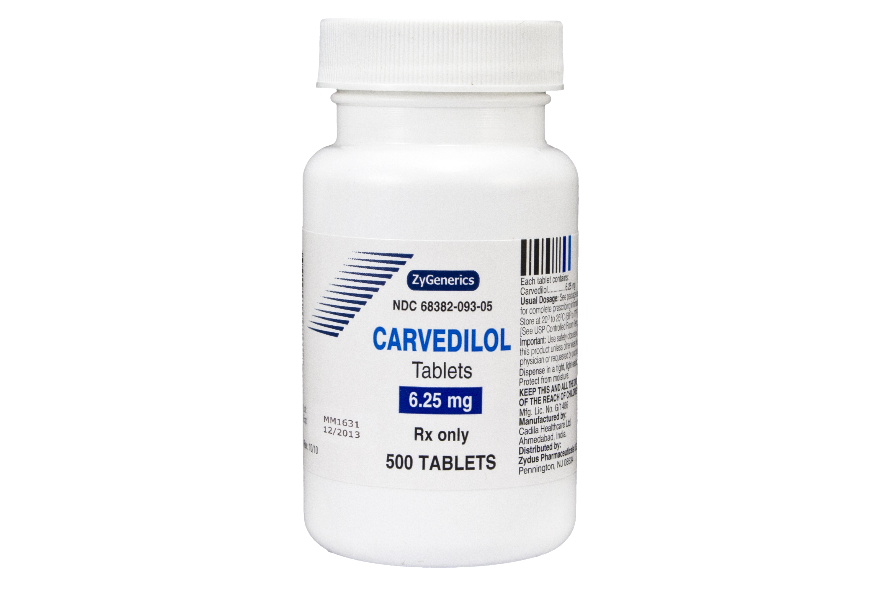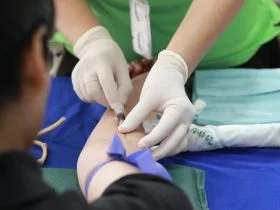Carvedilol is a beta-blocker medication commonly prescribed to manage high blood pressure and heart failure. It helps to reduce strain on the heart, improve blood circulation, and lower the risk of heart attacks and strokes. While taking carvedilol, it is essential to be mindful of dietary choices, as certain foods can negatively interact with the medication or exacerbate existing heart conditions.
Some foods have the potential to interfere with the medication’s effectiveness or increase the likelihood of side effects. For example, grapefruit and its juice may interact with carvedilol and affect its metabolism in the body. Moreover, high-sodium foods should be avoided, as they can worsen heart health and increase blood pressure. It is also important to stay away from salt substitutes, which are often high in potassium, sodium, calcium, and magnesium since they can lead to adverse interactions. By being aware of these foods to avoid while taking carvedilol, patients can help ensure the medication’s effectiveness and maintain their overall heart health.
Reader's Roadmap
Understanding Carvedilol
Carvedilol is a type of medication known as a beta-blocker. It is commonly prescribed to patients who require treatment for high blood pressure (hypertension) and heart failure. The drug works by blocking the action of certain natural chemicals, such as adrenaline, on the heart and blood vessels. This leads to a reduction in heart rate, blood pressure, and strain on the heart.
Carvedilol is available under the brand name Coreg, and can be found in two forms: immediate-release tablets and extended-release capsules. Both forms are taken orally. The dose of Carvedilol varies depending on an individual’s specific medical needs and their response to the medication. It is essential that patients adhere to their doctor’s prescribed dosage and instructions in order to achieve the best possible results.
When taking beta-blockers such as Carvedilol, it’s important for patients to understand what foods or substances they may need to avoid during their treatment. Some foods can interfere with the effectiveness of the medication or cause unwanted side effects. In the case of Carvedilol, grapefruit is one such food that should be avoided, as it can affect how the drug is broken down and metabolized in the body.
Aside from food interactions, patients are also advised to be cautious when consuming alcohol and caffeine while on beta-blockers. Specifically, alcohol can cause the medication to be less effective, while caffeine can increase blood pressure and heart rate, counteracting the intended effects of the medication.
Carvedilol and Heart Health
Carvedilol is a medication commonly prescribed to treat various heart-related conditions, including heart failure and hypertension, also known as high blood pressure. It works by blocking certain chemicals, such as adrenaline, that affect the heart and blood vessels. This, in turn, helps to reduce the heart rate, lower blood pressure, and alleviate the strain on the heart.
Patients with heart conditions like congestive heart failure left ventricular dysfunction, and arrhythmia can also benefit from carvedilol as part of their treatment plan. By decreasing the likelihood of heart attacks and strokes, carvedilol plays a crucial role in maintaining optimal heart health. Moreover, it has been shown to reduce the risk of dying from a heart attack, especially in individuals with left ventricular dysfunction.
It’s important for individuals taking carvedilol to be mindful of their diet, as certain foods and beverages can negatively impact heart health. High-sodium foods, for example, can exacerbate hypertension and are recommended to be avoided by those taking carvedilol. This applies to both processed foods and many restaurant dishes, which tend to have a higher salt content.
In addition to dietary considerations, it is essential for individuals taking carvedilol to monitor their heart rate and blood pressure regularly. If the heart rate drops below 55 beats per minute, the dosage of carvedilol may need to be adjusted. It is worth noting that carvedilol is generally not recommended for people with asthma or other types of bronchospastic disease, as it can trigger breathing difficulties.
In conclusion, carvedilol plays a significant role in managing and improving heart health for individuals with various heart conditions. Being mindful of one’s diet, particularly in avoiding high-sodium foods, and closely monitoring heart rate and blood pressure are crucial aspects of a successful treatment plan.

Common Side Effects of Carvedilol
Carvedilol is a medication commonly prescribed for the treatment of high blood pressure and heart failure. However, like most medications, it can have some potential side effects that patients should be aware of. By understanding the common side effects, patients can better prepare themselves and know when to consult their healthcare provider.
One of the most frequently reported side effects of carvedilol is dizziness. This can be accompanied by lightheadedness or fainting, especially when first starting the medication or when adjusting the dosage. It is important to move slowly when standing up from a seated or lying position, as this can help minimize the risk of dizziness and fainting.
Nausea and diarrhea are other possible side effects of carvedilol. These gastrointestinal symptoms can be uncomfortable and may cause patients to feel weak or fatigued. Staying hydrated and eating smaller, more frequent meals may help alleviate these symptoms.
Additionally, carvedilol can cause chest pain or discomfort in some patients. This is due to the medication slowing down the heart rate, which can lead to feelings of tightness or pressure in the chest. If chest pain becomes severe or persistent, it is essential to contact a healthcare provider immediately, as this may indicate a more serious issue.
Anxiety, headache, and blurred vision are other potential side effects of carvedilol. These symptoms may be mild and temporary, but it is important to discuss them with a healthcare provider, as they may need to adjust the medication or recommend additional treatments to alleviate these side effects.
Lastly, swelling in the feet, ankles, or legs can occur in some patients taking carvedilol. This may be a result of fluid retention and can lead to feelings of discomfort or tiredness. Elevating the legs and wearing compression stockings may help reduce swelling, but it is crucial to inform a healthcare provider about this side effect, as it could indicate an underlying issue that requires further investigation.
In conclusion, understanding the common side effects of carvedilol allows patients to better manage their treatment and communicate effectively with their healthcare provider, which can lead to improved health outcomes.
Interactions Between Carvedilol and Food
Carvedilol is a widely-used beta-blocker medication, prescribed for treating high blood pressure and heart failure. When following a carvedilol treatment plan, it is important to be mindful of certain food and drink items that can interfere with its effectiveness.
One of the most well-known interactions occurs between carvedilol and grapefruit. Grapefruit and its juice can affect carvedilol’s metabolism in the body, making it less effective or more prone to causing side effects. This interaction is not limited to grapefruit but also extends to Seville oranges, as they contain similar substances.
Another important aspect to consider while taking carvedilol is your overall diet. Consuming high-sodium foods should be avoided, as they can worsen heart health, especially for those with high blood pressure. Focus on a low-sodium diet that promotes heart health by incorporating whole grains, lean proteins, and plenty of fruits and vegetables.
Caffeine can also impact the effectiveness of carvedilol, so it is wise to limit your intake of caffeinated beverages such as coffee and energy drinks. Caffeine can raise blood pressure and heart rate, countering the effects of the medication. It is advised to consult your doctor for recommendations on caffeine consumption while taking carvedilol.
Keeping blood sugar levels in check is crucial when on carvedilol, as it can mask the symptoms of low blood sugar (hypoglycemia). It is recommended that patients monitor their blood sugar levels closely and consume a balanced diet that helps to regulate blood sugar. Limiting or avoiding the consumption of red meat can be beneficial, as it may be high in sodium.
In conclusion, managing your diet, and avoiding certain foods and beverages, such as grapefruit, high-sodium foods, and caffeinated drinks, can help optimize the effectiveness of carvedilol treatment. Always consult your healthcare provider for personalized guidance on dietary changes and interactions while taking this medication.
How Supplements and Carvedilol Interact
Carvedilol is a medication with a wide range of uses, from treating high blood pressure to heart failure. To ensure its effectiveness and avoid complications, it is essential to understand how supplements, vitamins, and other substances interact with this drug.
One should be cautious with potassium supplements when taking carvedilol. Some research has shown that people taking beta-blockers, like carvedilol, have an increased risk of hyperkalemia, a condition in which the blood potassium level is too high. It is essential to avoid potassium-rich salt substitutes and consult a healthcare professional before using any potassium supplements.
Vitamins and carvedilol have the potential to interact, although these interactions may not necessarily be harmful. However, it is ideal to obtain vitamins and minerals from a balanced diet or consume them according to a healthcare professional’s advice. A study found that a total of 17 drugs interact with various vitamins, emphasizing the importance of being informed about which specific vitamins can be safely taken alongside carvedilol.
Herbal supplements, too, may pose risks when combined with carvedilol. While not all herbal supplements are hazardous, some can negatively impact heart health or blood pressure. It is wise to consult a healthcare professional before starting any herbal supplement, especially when taking carvedilol.
Finally, multivitamins and vitamin supplements should be approached with a similar mindset of caution. As with any drug interaction, the specific contents of these supplements or the doses can impact their compatibility with carvedilol. To be on the safe side, consulting a healthcare professional for personalized advice on whether to take these supplements alongside carvedilol is highly recommended. With the right knowledge and precautions, patients can enjoy the benefits of carvedilol without compromising their overall health or well-being.

The Significance of Doctor Consultation
When taking carvedilol or any other medication, it is crucial to consult with your doctor or healthcare provider to ensure proper use and to maximize its effectiveness. They possess the knowledge and experience to provide personalized advice tailored to your specific medical condition and circumstances.
Discussing your medication with a doctor helps you understand how different foods, drinks, or over-the-counter drugs may interact with your prescribed medication. Certain combinations can interrupt the effectiveness of the drug or even pose risks to your health. Your healthcare provider can advise you on potential interactions to avoid and any lifestyle changes you may need to make while taking carvedilol.
It is also important to keep your doctor informed about any new medications you begin taking, whether they are prescribed or over-the-counter products. This allows your healthcare provider to monitor potential interactions and adjust your treatment plan if necessary. Additionally, if you are considering stopping your carvedilol treatment or making significant changes to your medication regimen, it is crucial to consult your doctor first. They can provide guidance on the safest way to proceed and recommend alternatives if needed.
In summary, consulting with your doctor when taking carvedilol is essential for managing your health safely and effectively. They can provide valuable guidance on potential food or drug interactions, help you make informed decisions about your treatment, and ensure that changes to your medication regimen are managed properly.
Carvedilol’s Effect on Body Hormones and Blood Vessels
Carvedilol, a non-selective adrenergic blocker, plays a significant role in managing various medical conditions such as hypertension (high blood pressure), left ventricular dysfunction following a heart attack, and heart failure with reduced ejection fraction (HFrEF). In order to appreciate the significance of avoiding certain foods while taking carvedilol, it is essential to understand its influence on the body’s hormones and blood vessels.
The primary hormones affected by carvedilol are epinephrine and norepinephrine, collectively known as adrenaline. These hormones are responsible for regulating crucial body functions such as heart rate, blood pressure, and the distribution of blood in blood vessels. Carvedilol functions by inhibiting the activation of alpha-receptors located on the blood vessels’ surface, thereby interfering with adrenaline’s action.
This interference causes blood vessels to relax and widen, allowing easier blood flow, thus lowering blood pressure. Given carvedilol’s significant impact on the body’s hormones and blood vessels, it is crucial for patients on this medication to avoid certain foods that may negate these positive effects, such as those rich in sodium, caffeine, or harmful fats. This not only ensures that the medication works as intended but also helps maintain a healthier lifestyle overall.
Practical Tips for Taking Carvedilol
Carvedilol is a medication commonly used to treat high blood pressure and heart failure. To ensure its effectiveness, it is important to follow some practical tips while taking the medication.
Dietary considerations: Some foods may interact with carvedilol and affect its efficacy. For example, it is recommended to avoid bananas when taking this medication, as they can cause an increase in blood potassium levels. Instead, opt for a balanced diet with plenty of fruits, vegetables, and whole grains.
Exercise: Engaging in regular physical activity can help lower blood pressure and improve overall heart health. However, it is essential to consult with your doctor before starting an exercise program, as they can provide guidance on the most appropriate activities and intensity levels for your specific condition.
Sleep: Getting adequate sleep is important for overall health and can also help regulate blood pressure. Aim for at least 7-8 hours of quality sleep each night. If you experience difficulty falling or staying asleep, consult with your healthcare professional for recommendations tailored to your situation.
Medication intake: Carvedilol tablets should be taken with food to help enhance absorption. Do not chew or crush the tablets; swallowing them whole is essential for the medication’s proper release and absorption. Follow your doctor’s instructions carefully regarding the appropriate dosage and timing of doses.
Communication with healthcare professionals: Keep open lines of communication with your healthcare team regarding your progress while taking carvedilol. Mayo Clinic recommends regular visits to ensure the medication is working effectively and to make any necessary adjustments to your treatment plan.
Privacy practices: When discussing your medication and health with healthcare providers, be mindful of the information you share through email communications, as confidentiality might not always be guaranteed. It’s best to discuss sensitive medical information through secure platforms or during in-person appointments.
Taking these precautions can help you get the most benefit from your carvedilol treatment while minimizing potential side effects and complications. Always consult with your healthcare provider for the most accurate information and personalized recommendations regarding your medication and overall health.







Leave a Reply
View Comments